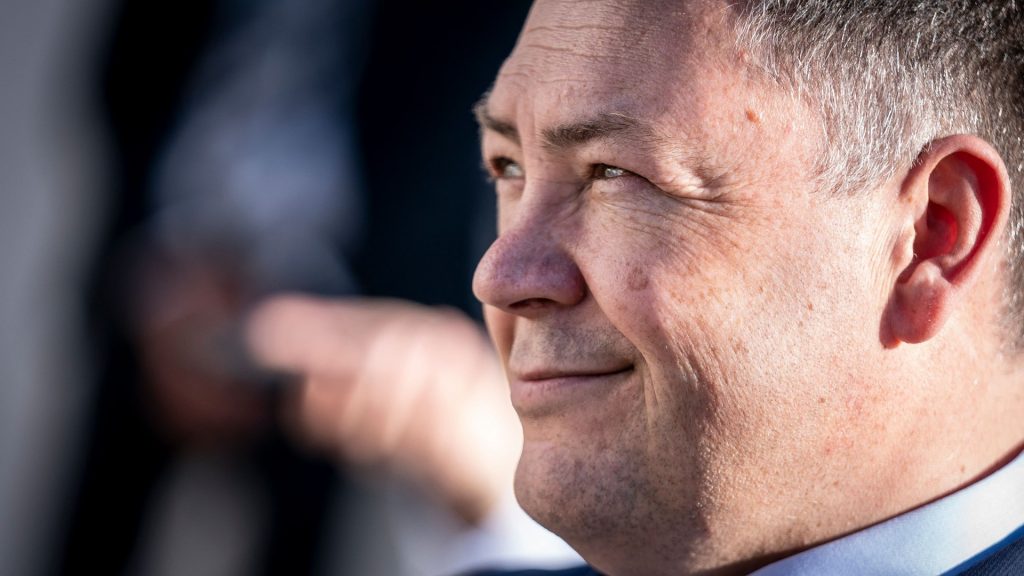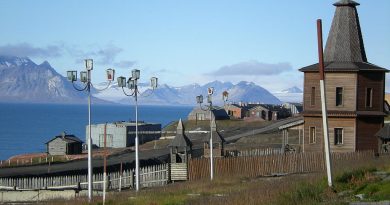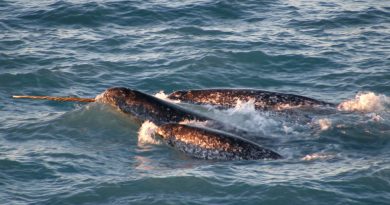Greenlandic government suspends oil exploration over climate concerns

The government of Greenland has suspended oil exploration in the territory over climate concerns, saying “the future does not lie in oil.”
“There’s no doubt that our subsoil is rich in oil resources,” the government said in a news release on Thursday. “But oil extraction won’t only have positive effects on our society, it will adversely affect our nature and environment, and may adversely affect fisheries as well as contribute to the worsening global climate crisis.
“The future does not lie in oil. The future belongs to the renewable energy and in that respect, we have much more to gain.”
The Greenlandic government made the decision to halt oil exploration on June 24th.
Underperforming oil strategies
In their statement, the government also cited the disappointing returns on oil projects in the region, saying the reality is far from the oil boom many anticipated.
The territory’s 2014-2018 oil strategy expected one to two offshore drilling project every two years, no later than 2018, but was not realized.
Efforts in the 2020-2024 strategy to drum up renewed interest in drilling projects in Greenland through things like tax incentives, also failed to bring in significant returns.
“A new economic analysis of the profitability of oil exploration clearly shows that it is low, less than half of what the oil companies expect from returns,” the government said.
“The analysis is supplemented by a cost analysis that shows that large parts of the unexplored oil potentials will be loss-making. In addition, a number of investors have refused to invest in hydrocarbon exploration in the Arctic. These facts support the Naalakkersuisut (Greenlandic government) that the right decision has been made. The decision protects the renewable natural resources we have at our disposal and has been made both for the sake of the country’s current residents, and moreover also for the sake of our descendants.”
Risky and expensive undertakings
Greenland, with a population of 56,000 people, has had home-rule government since 1979, with Denmark responsible for things like foreign affairs and the military. Denmark also provides an annual subsidy of 4.5 billion Danish kroner (approximately $900-million CDN). Greenland’s eventual goal is independence, but is looking first to develop the economy in a way that can make up for the loss of the subsidy.
Oil was long seen as a potential revenue generator for the territory but has not lived up to expectations over the last decade. The remoteness of Greenland has made exploration risky and expensive. Cairn Energy spent $1.2 billion on oil exploration in the region which yielded no results. Statoil exited several licenses off the west coast of Greenland in 2015.
“International investment in the energy sector in these years is moving away from oil and gas and into renewable energy,” Pele Broberg, Greenland’s minister for Business and Foreign Affairs, said. “Therefore, it’s natural that we orient towards the opportunities of the future and not on the solutions of the past. The decision to stop exploration for oil is also the story of a population that puts the environment first.”
Focus to turn to minerals, raw materials and hydropower investments
The government says instead of oil, they’ll focus on minerals, raw materials and hydropower investments.
“The resources we spend on keeping alive the dream of an oil bonanza can be better used in other parts of our business,” Naaja H. Nathanielsen, the minister of Natural Resources, said.
“Suspending the current oil strategy is the right choice. It is a decision where climate considerations, environmental considerations and economic reason go hand in hand. We have a great shared responsibility to take care of our vulnerable Arctic environment. In future, the Ministry of Natural Resources will focus on minerals and continue to obtain knowledge about our subsoil.”
Write to Eilís Quinn at eilis.quinn(at)cbc.ca
Related stories from around the North:
Canada: Community in northern Quebec to make the jump from diesel to hydroelectricity, CBC News
Finland: The world could transition entirely to cheap, safe renewable energy before 2050: Finnish study, Yle News
Norway: Are Norway’s energy policies caught between ‘black gold’ & green ambitions?, Blog by Marc Lanteigne
Russia: Italian firm to build giant wind farm in northwestern Russia, The Independent Barents Observer
Sweden: Sweden’s solar industry sees bright future despite shrinking subsidies, Radio Sweden
United States: Alaska’s Northwest Arctic Borough gets $2 million tribal energy grant, Alaska Public Media



